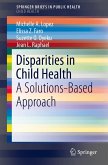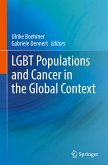Despite improvements in strategies for early detection and cancer treatment, racial and ethnic groups and individuals from other medically underserved populations continue to experience disparities in cancer morbidity and mortality. Research in cancer health disparities has evolved from first generation studies that described racial differences in morbidity and mortality to research that examines the efforts of interventions that focus on increasing access to early detection and treatment. As a result of these efforts, racial background, socioeconomic characteristics, access to high quality cancer care, and psychological and social factors have been documented as important determinants of cancer health disparities; these factors provide the context within which cancer is detected, treated, and prevented.
The field of cancer health disparities is now at a critical juncture where it is essential to move beyond descriptive information on determinants of disparities in cancer morbidity and mortality to translational studies that examine basic biological processes and how these processes interact with social, psychological, and behavioral factors to contribute to disparities in cancer risk and outcomes. Empirical evidence about the influence of multilevel determinants has grown, and now, more than ever, efforts are being made to understand the independent and interactive effects of biological, psychological, behavioral, and social determinants of cancer health disparities and to translate this information into sustainable interventions for cancer prevention, control, and treatment.
Provides an in-depth examination of emerging evidence about multilevel determinants of cancer health disparities
Describes novel frameworks and approaches that are being used to understand and address cancer health disparities
Presents evidence-based interventions that have potential to achieve equity in cancer outcomes
Reviews the effects ofprevious and ongoing approaches to address disparities
The field of cancer health disparities is now at a critical juncture where it is essential to move beyond descriptive information on determinants of disparities in cancer morbidity and mortality to translational studies that examine basic biological processes and how these processes interact with social, psychological, and behavioral factors to contribute to disparities in cancer risk and outcomes. Empirical evidence about the influence of multilevel determinants has grown, and now, more than ever, efforts are being made to understand the independent and interactive effects of biological, psychological, behavioral, and social determinants of cancer health disparities and to translate this information into sustainable interventions for cancer prevention, control, and treatment.
Provides an in-depth examination of emerging evidence about multilevel determinants of cancer health disparities
Describes novel frameworks and approaches that are being used to understand and address cancer health disparities
Presents evidence-based interventions that have potential to achieve equity in cancer outcomes
Reviews the effects ofprevious and ongoing approaches to address disparities








